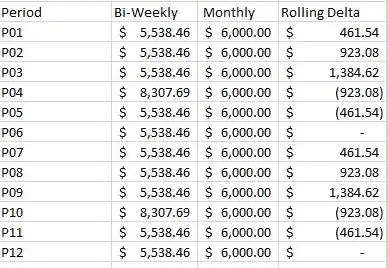I have read in many sources that it's generally better for an employee to be paid bi-weekly than monthly. I have been performing some calculations and can't see the benefit to this.
Say I was on a $100,000 salary. Let's assume a tax rate of 0% for the purposes of this calculation (I wish!).
Monthly payments are calculated like this:
100000 / 12
= 8333.33 per calendar month
Bi-weekly payments are calculated like this (assuming non leap year):
(100000 / 365) * 14
= 3835.61 per fortnight
Here's my analysis:
- Let's assume that bi-weekly payments always fall on a Monday.
- Since the maximum number of days per month is 31, the first Monday of a month has to fall on either 1st, 2nd or 3rd of the month for there to be 3 payments in that calendar month (that's assuming of course that the first Monday of the month was a payday).
- This means there will (usually) be 2 months in the year with 3 payments, while the remaining 10 months will only have 2 payments.
- In the months with 2 payments (the majority), the sum of the 2 payments will be less than the payment I would receive if I was being paid monthly (using the figures above).
As far as I can see, unless I was someone who was living from paycheque to paycheque, there's no real benefit to getting paid bi-weekly instead of monthly.
I thought that maybe if I was being paid into an offset account which was reducing interest on my mortgage, I'd be better off. But my calculations (assuming interest is calculated daily) indicate that being paid monthly is still better off, because on a month by month basis my cumulative income is still higher when being paid monthly.
The only time I can see a benefit is if 1st January is a payday, then for the non leap-year case (365 days) the last paycheque will appear on 31st December. This is one extra paycheque a year. But this is not a common case.
Are my calculations correct? Or are there benefits I'm not aware of here?
